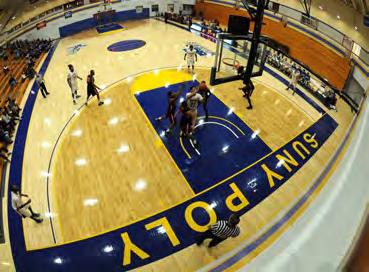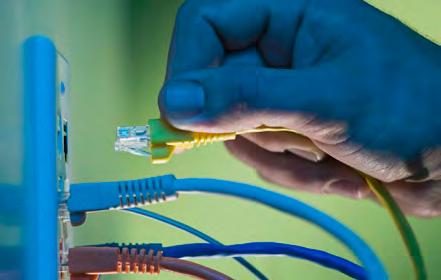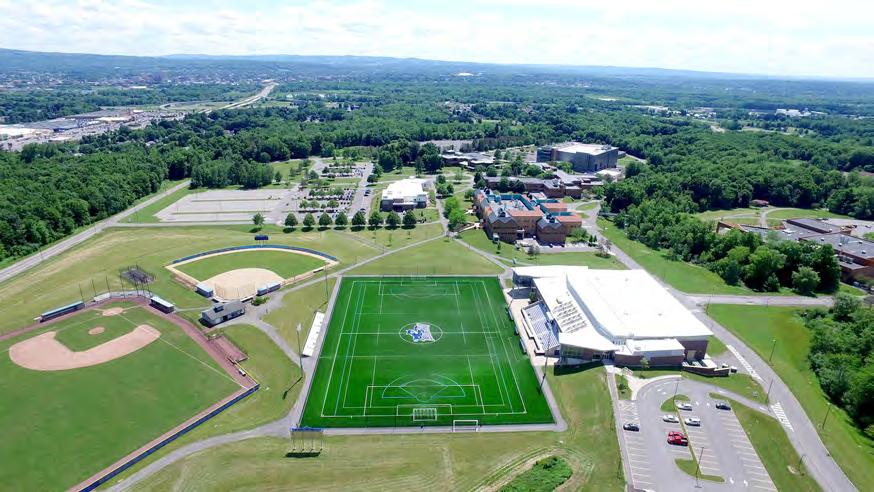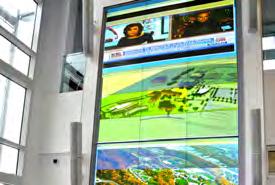





SUNY Polytechnic Institute, New York’s premier public polytechnic, provides an innovative and affordable higher education for students interested in science, engineering, technology, business, healthcare, and other liberal arts offerings for a well-rounded approach to experiential learning. This hands-on education is cognizant and respectful of the customary academic enterprise while fostering the fast-evolving culture of discovery in today’s knowledge-driven global economy, providing students an unmatched education targeted for success in our fast-changing world.
SUNY Poly students enjoy public school tuition with benefits that many small, private institutions boast, including small class sizes, individualized learning experiences, and a tight-knit community.



The Master of Science in Network and Computer Security (NCS) offers students a cutting-edge curriculum in the field of cybersecurity focusing on practical security issues in networking and computing. The program has been developed in conjunction with local experts in both industry and government.


The program is designed for students who have the equivalent of an undergraduate degree in network and computer security, computer science or systems, electrical engineering or a related field; however, students without a background in one of these areas may enter the program by completing appropriate prerequisite coursework under the guidance of a faculty adviser. Students with appropriate professional experience in information technology may also be eligible for admission.
The program accommodates both full-time and part-time students. Full-time students can complete the program within an 18 month period. Part-time completion will vary based on total number of credits taken each term. A program of study will be developed with the program coordinator which responds to student needs and the department’s plan for course scheduling.
Cybersecurity professionals are in high demand throughout industry and government sectors. The NCS program allows students to advance their careers and increase their depth of understanding in this dynamic and growing field. Students are challenged in the classroom with a rigorous foundation of coursework that prepares them for management and technical positions in the fields of cybersecurity research and IT security management.
The Newman Cybersecurity Lab (Donovan 1240) provides NCS students with access to networking and computer resources used for both in-class lab sessions and for individual projects. Eight “pods” provide students with their own “branch office” that can be configured and secured within the closed lab environment. Each pod contains a switch (Cisco Catalyst 2960), router (Cisco ISR 1921), firewall (Cisco 5505 ASA), wireless access point (Cisco Aironet model AIR-AP1142N), IP phone (Digium D40), and Linux host PC.
The
Core Courses (18 credit hours)
NCS 511 Information Assurance Fundamentals
NCS 521 Data Communications
NCS 531 Computer Security
NCS 541 Network Security
NCS 543 Secure Protocols
NCS 598 Research Methods
Technical Electives (9-12 credit hours)
NCS 515 Linux Networking
NCS 522 Network Administration
NCS 532 Network Intrusion Prevention and Detection
NCS 542 Advanced Network Protocols and Standards
NCS 552 VoIP and Multimedia Security
NCS 562 Wireless and Mobile Networks
NCS 563 Wireless Security
NCS 590 Special Topics in Network and Computer Security
Thesis/Project (3-6 credit hours)
NCS 597 Research Project (3 credits) OR NCS 599 Thesis Research (6 credits)
Students may choose either the project or thesis option for the culminating experience. The project option is for students who want to complete a practical programming or simulation project, or produce a Technology Case Study (TCS) that describes in detail the state-of-the-art of the technology, market and future prospects for some cutting-edge topic in the field. The thesis option is for students wishing to pursue original research and requires students to demonstrate appropriate independent research and written communication skills.
To be considered for admission, all applicants to the MS Network and Computer Security program must possess a baccalaureate degree with a major in network and computer security, computer science, computer information systems, electrical engineering, or a related field from an accredited university or college. In addition, coursework or a demonstrated proficiency in each of the following areas is required: computing fundamentals, unix/ linux programming, computer organization, networking of information systems, discrete math, calculus, and statistics. Applicants must generally have an average of B or better (a GPA of 3.0 on a 4.0 scale).
A GRE General Test score is generally required for consideration. For applicants requiring proof of English proficiency, the minimum GRE score requirement for admission consideration is a 153 on the quantitative section of the exam.
Applicants not meeting the above admission criteria will be considered on an individual basis.
The Application for Graduate Admission and all required forms are available at: sunypoly.edu/ graduate-admissions/apply-now/
“ The program has been developed in conjunction with local experts in both industry and government.”





Whether earning your degree online or on campus, part- or full-time, SUNY Poly is an affordable option for those interested in advancing their careers and increasing their earning potential. Ph.D., Master’s and Advanced Certificate-level programs prepare over 800 graduate students to be leaders in an ever-changing global workforce.








